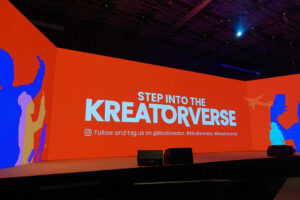HONG KONG-BASED tourism platform Klook said it contributed about $7.2 billion to the gross domestic product of the Asia-Pacific region in 2023.
At an event in Singapore marking the company’s 10th anniversary, Klook Chief Executive Officer and Co-Founder Ethan Lin said they had commissioned a study by Oxford Economics, showing that Klook’s services supported over 219,000 jobs across 16 markets in the region in 2023.
“[Klook is] not just about experiences, we have also created real economic opportunities together with all our partners here for many of the destinations in Asia and globally,” he said during the Kreatorverse event on Sept. 24 in Singapore.
“What’s especially notable is that 80% of our partners are small- and medium-sized businesses, which is really forming the backbone of tourism in many of the destinations and forming the local communities,” he added.
In explaining Klook’s edge over other competitors in the market, Senior Director of Product Management Sam Kwong told BusinessWorld in a one-on-one interview that they provide customers with a better selection of experiences.
The company recently launched its “Money Can’t Buy Experiences” campaign for its 10th anniversary, offering lucky winners the opportunity to sleep under the stars in Dubai Glass Dome Desert Dreamscape, snowboard down the top of Europe with a world champion, hunt for mushrooms in the Swiss Alps, and swim with whale sharks on a private Maldives island, among others.
Mr. Kwong pointed out that Klook accepts over 40 payment methods and currencies, and has 15 different languages which allow for automatic translation.
“One of the key reasons we find many customers returning to Klook after completing their research and making a booking is often due to the language or the payment methods available from the local provider,” he said.
In a separate interview with Filipino media, President and Co-Founder Eric Gnock Fah said the top three destinations for Filipinos are domestic spots, Hong Kong, and Japan, largely due to the latter two’s theme park offerings.
He added that South Korea did not have a strong rebound for Filipino tourists post-pandemic, partly due to visa processing difficulties.
SUSTAINABLE TRAVELAs part of its 10th anniversary, Klook said it is adopting a new standard for eco-friendly travel by collaborating with firms that prioritize sustainable practices, improving animal welfare at elephant sanctuaries, and giving away complimentary local tours led by experts to spotlight cultural heritage and support small businesses in the tourism ecosystem.
“Looking ahead, our focus is on fostering deeper connections between travelers and local communities, preserving cultural heritage, and empowering the many people whose livelihoods depend on tourism,” Mr. Fah said in a separate statement.
Currently, Klook has over 200 certified sustainable activities. It added that these activities follow internationally recognized sustainability standards to help travelers make choices that align with their values.
Klook is enhancing its commitment to responsible tourism by introducing new guidelines for elephant-related experiences in collaboration with experts from the Asian Captive Elephant Standards, the criteria aimed to improve welfare standards for elephants in captivity.
At the launch, 12 elephant sanctuaries have already joined the “Klook Assessed” program, with more expected to participate in the coming months.
The platform was launched in 2014, with the aim of providing a one-stop shop for experiences and travel services, ranging from attractions and tours to local transport and experiential stays in over 2,700 destinations globally. — Chloe Marie A. Hufana
